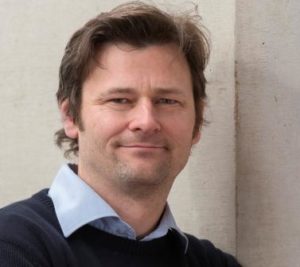
Researchers from across Australia will gather at Flinders Victoria Square on Monday 24 November for the 13th National Emerging Researchers in Ageing (ERA) Conference 2014.
The two-day ERA Conference, jointly hosted by the Centre for Ageing Studies at Flinders University and the Australian Population and Migration Research Centre at the University of Adelaide, presents a unique opportunity for research higher degree students in the diverse fields relating to ageing to present their developing research.
Each year it draws an audience of students, academic researchers, practitioners and policy makers, offering an exciting opportunity to network, exchange ideas and discuss the latest in ageing-related research.
Flinders University’s Dr Tim Windsor, who is Deputy Director of the Flinders Centre for Ageing Studies, said it was one of the most important events of the year for researchers in this area.
“The global challenges and opportunities arising from population ageing mean that developing a strong research focus in this area is now more important than ever,” said Dr Windsor.
“ERA provides a great opportunity for students and postdoctoral researchers working in ageing to make valuable connections with each other, to gain experience in presenting their work, and to develop a broader appreciation of contemporary research being conducted in the area.”
The Conference’s theme of “Making Research Matter” highlights the need for work which is significant (theoretically), sound (methodologically), and relevant (applicable to society and older people in particular).
One of the Conference sessions will look at how older people are often considered amongst the most vulnerable during emergencies caused by bushfires, environmental hazards and extreme weather events.
Dr Victoria Cornell, Research Associate, University of Adelaide, will present research challenging this notion, drawing on the lived experiences of older people who consider themselves resilient rather than vulnerable.
Her research, undertaken with people aged 70 or older living in their own homes in Adelaide/Adelaide Hills, identifies the strength of will and decision making ability that many older people have acquired incrementally from living through a range of emergencies throughout their lives.
“Many older people demonstrate a mental ability to cope with emergency situations, drawing on their own life experiences, which can help prepare for future events,” said Dr Cornell.
“It is critical to understand what being prepared can mean for older people, and what gives them a sense of comfort, safety and security.
“It is not simply completing a checklist, or developing a plan. They need to be engaged in the process, recognising that they have confidence earned by experience and, while acknowledging their own diminishing physical ability, can face situations with awareness and good judgement.”
Dr Cornell’s paper Emergency preparedness and resilience: an older person’s perspective, which features in the Decision Making and Community Participation session, is a key feature in one of nine Conference sessions on different aspects of ageing.
The ERA conference is the only national conference in Australia focusing exclusively on the work of higher degree research students and early career researchers undertaking research in ageing.
Based at Monash University and supported by the ARC Centre for Population Ageing Research (CEPAR) the ERA initiative provides a number of opportunities for emerging researchers.

